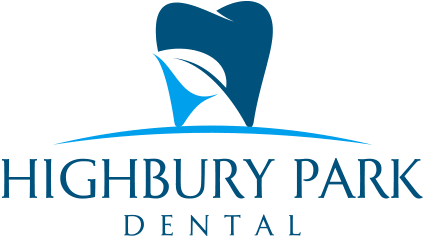A Look at Oral Health Conditions That Are More Common as We Age
It’s no secret that the human body changes as we age and our health is not the same as it once was. And our oral health is no exception.
As our bodies age, so do our mouths. And our teeth and mouths experience a lot of wear and tear over time.
Combine the ageing process with this wear and tear, along with certain health conditions and medications that we encounter as we get older, and it’s no surprise that our oral health changes.
While you can’t turn back the hands of time, you can still take steps to maintain good oral health and avoid the many common oral health problems that occur more often as we age. Here’s how.
WAYS OUR ORAL HEALTH CHANGES WITH AGE
With age, the body’s cells, tissues, and organs change.
These changes include:
- A slower rate of cell renewal;
- Loss of bone density, resulting in weaker bones;
- Thinning of tissues, resulting in loss of elasticity; and,
- A weakened immune system, making it easier to develop infections that take longer to heal or recover from.
These changes also affect the mouth, teeth, and gums, including the bone and tissue in the mouth, which can increase the risk of oral health problems as we age.
Also, when we get older, we are more likely to develop certain oral health conditions brought on by medications, underlying health conditions, and simple wear and tear over time.
THE MOUTH-BODY CONNECTION
The health of your mouth is connected to the health of the rest of your body. So if you have oral health problems, such as an infection in your mouth, there is a risk of this infection spreading to other parts of your body and causing severe health problems.
For example, there is a connection between gum disease and diabetes, heart disease, stroke, and respiratory problems. Researchers believe that the bacteria from gum infections can spread in the bloodstream to cause inflammation in other organs and tissues.
And those with diabetes are more likely to experience gum disease due to damage to blood vessels caused by uncontrolled blood sugar. High blood sugar means there is an increase in sugar for plaque bacteria to feed on. And the inflammation from gum disease may increase the body’s resistance to insulin, which leads to a vicious cycle since it can be harder to control blood sugar.
COMMON ORAL HEALTH CONCERNS FOR SENIORS
The following are some of the most common oral health conditions that arise as we age.
Dry Mouth
While salivary gland production slows down a bit with age, chronic health conditions and certain medications are the most common causes of dry mouth as we age.
Health conditions that cause dry mouth include diabetes, stroke, and Sjögren syndrome. And medications that cause dry mouth include medicines for high cholesterol, high blood pressure, pain, and depression.
With dry mouth, the salivary glands aren’t producing enough saliva, which increases the risk of:
- Mouth sores;
- Difficulty chewing, tasting, and swallowing;
- Gum disease;
- Tooth decay; and,
- Thrush—a yeast infection in the mouth.
Since our mouths need sufficient saliva production to clean away bacteria, having dry mouth increases the risk of tooth decay, gum disease, and other oral health problems
Tooth Decay
Along with dry mouth, another common cause of tooth decay associated with ageing is attrition—also known as wear and tear. The many years of chewing and grinding wear down tooth enamel, causing an increased risk of cavities as we age.
Cavities occur when plaque bacteria change food sugars and starches to acid, which erodes tooth enamel, eventually causing holes in teeth. And since older adults tend to have receding gums, cavities are more likely to develop at the root of the tooth—known as root decay.
Gum Disease
Gum disease is caused by a buildup of plaque bacteria on the teeth and gums. It is a common concern among older adults who didn’t practise proper oral health care habits earlier in life, such as regular flossing, brushing, and visits to the dentist for professional teeth cleanings.
Also, brushing too hard over the years can cause gums to recede, making it easier for bacteria to build up.
In the early stages of gum disease, your gums may be swollen, red, or bleeding. And as the disease progresses into the gum tissues and supportive structures around the teeth, tooth loss can occur.
The following are certain conditions and diseases that are common in older adults that can put them at risk of gum disease:
- Not practicing regular oral health care, such as brushing and flossing regularly, and visiting the dentist;
- Diabetes;
- Dry mouth;
- Smoking; and,
- A weakened immune system.
Oral Cancer
As we age, there is also an increased risk of oral cancer, especially for those who smoke or chew tobacco products and drink alcohol in excess. Oral cancer is also more common in men over the age of 40.
Other factors that may also increase the risk of oral cancer include:
- Taking an immunosuppressant—medicine that weakens the immune system;
- Rubbing in the mouth from rough teeth, fillings, or dentures over an extended period of time;
- Human papillomavirus (HPV) infection; and,
- Poor oral hygiene.
Tooth Discoloration
A slight darkening of the teeth is a natural effect of ageing dentin, the layer of the tooth below the enamel.
Also, staining from food, drinks, and tobacco use over the years can lead to tooth discolouration. Tobacco products, soda, red wine, coffee, and tea are among the biggest causes of yellowing and staining teeth.
Tooth Loss
Advanced gum disease is a major cause of tooth loss as we age. When gums recede, especially with gum disease, the roots of teeth become exposed, leading to root decay and, eventually, tooth loss when the tooth is too decayed to keep, or the tooth’s supportive structures no longer hold the teeth in place.
TIPS FOR MAINTAINING PROPER ORAL HEALTH AS YOU AGE
You can keep your oral health in top shape as you age with the following tips:
Keep Up With Regular Brushing and Flossing
Following a regular oral health routine is the best way to maintain good oral health as you age. So make sure to floss daily, brush twice a day with a soft-bristle toothbrush and fluoride toothpaste, and brush for at least two minutes each time. You may also want to rinse your mouth with antibacterial mouthwash after brushing to help reduce plaque buildup.
Look For Changes in Your Mouth
Look out for any changes in your mouth. And visit your dentist as soon as possible if you notice anything out of the ordinary. These changes could be a sign of tooth decay, gum disease, or oral cancer. And the earlier you spot these changes, the faster they can be treated.
Long-lasting changes, such as sores, lumps, and red or white patches that won’t go away, should be looked at by your dentist immediately, as well.
Visit the Dentist Regularly
Regular visits to the dentist—even if you have dentures—will help you maintain good oral health. Your dentist can spot and prevent any potential problems ahead of time.
Professional dental cleanings will help keep your gums and teeth healthy. And dental restorations can keep your teeth looking great.
Quit Smoking
Tobacco use, especially smoking, is linked to an increased risk of mouth, throat, and lung cancer, along with other serious health problems, such as heart disease.
So if you smoke, talk to your dentist or doctor about resources to help you quit smoking. There are many smoking cessation options available. And while quitting smoking can be difficult, it’s never too late to quit. And it is the best thing you can do for both your oral and overall health.
It’s also never too late to start taking control of your oral health. While we are more likely to encounter oral health problems as we age, there are things you can do to prevent and treat oral health conditions before they worsen. So take care of your teeth, and they will continue to take care of you.

